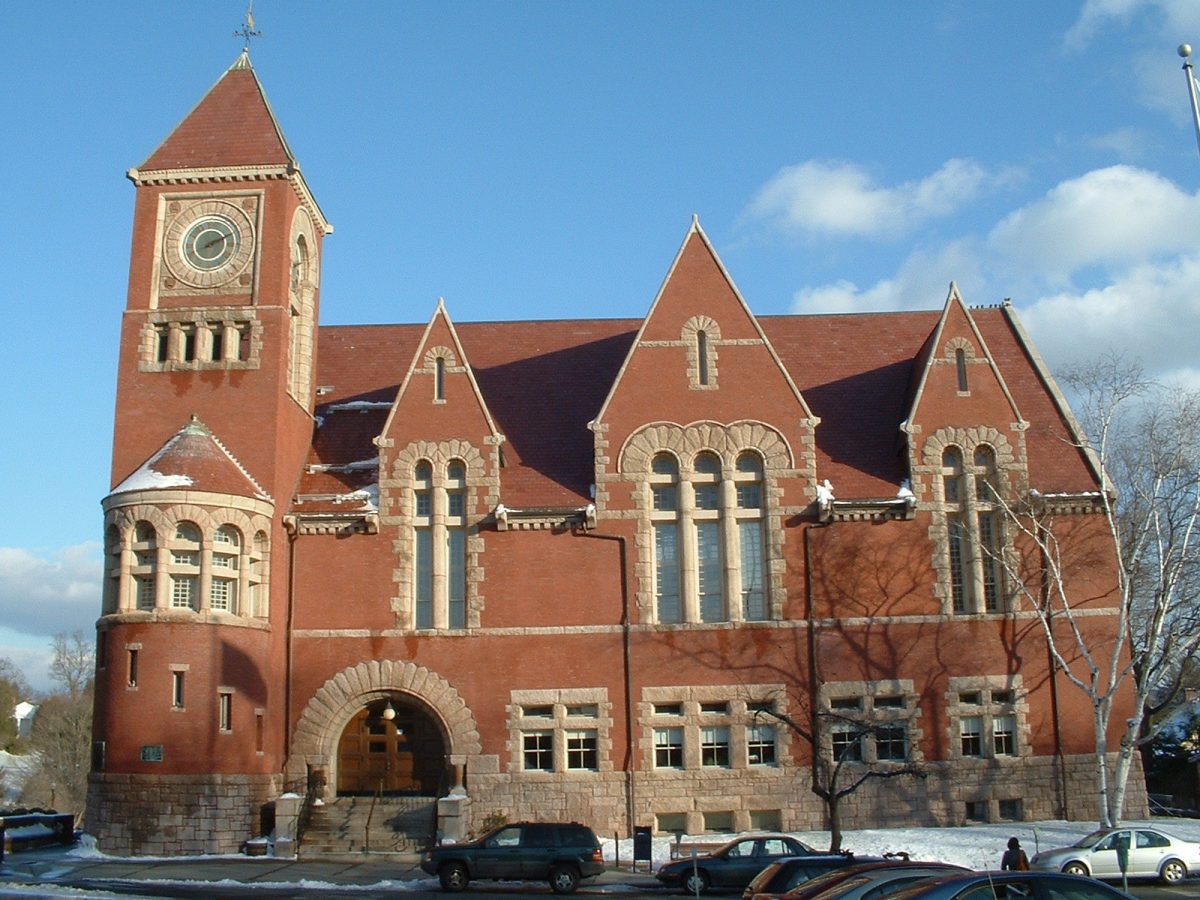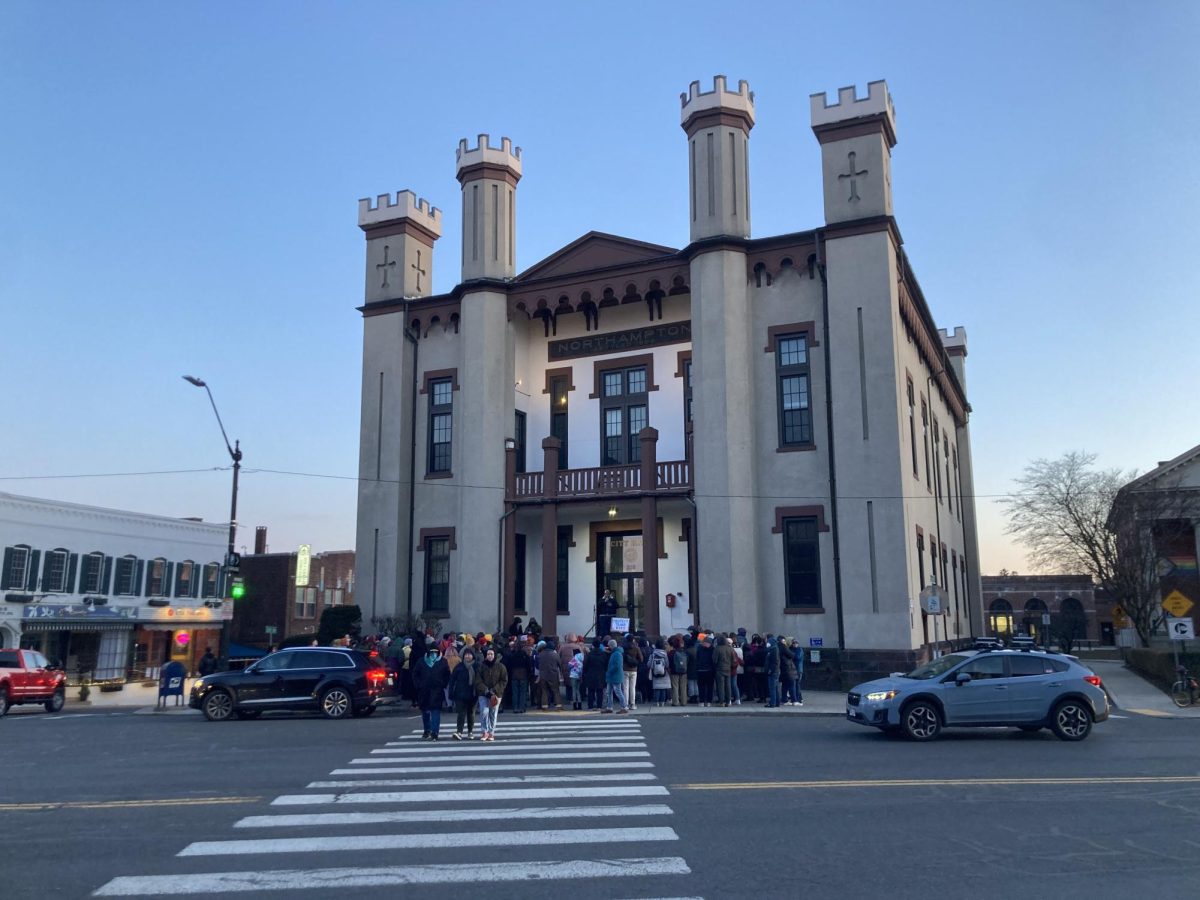Despite a dreary forecast, hundreds gathered on the steps of City Hall in Springfield, Mass., all donning hoodies in solidarity with Florida shooting victim Trayvon Martin Saturday morning.
The estimated 1,200 attendees marched through the streets of Springfield during the “1,000 Hoodies: A Walk for Trayvon” event to honor the African-American teen shot and killed by a neighborhood watchman in Florida last February 26.
The march, organized by the Springfield-based Alliance of Black Professionals, wound through Main, Worthington, Dwight and State Streets, beginning and ending on the front steps of City Hall. The crowd, ranging from parents with young children to local teenagers of various ethnicities, donned hooded sweatshirts, or hoodies,
“You feel like an injustice is being done, no arrests, no proper procedure. Why? We want proper procedures in every case. That’s why we’re here,” said University of Massachusetts alumnus and Springfield resident Jeffrey Morkham.
While walking home from a trip to a local convenience store on Feb. 26, the 17-year-old was followed by George Zimmerman, a neighborhood watch volunteer, who told police dispatchers in a 911 call that Martin looked “suspicious.” Zimmerman claimed he killed Martin in self-defense under Florida’s “stand your ground” law, although the details of the incident are still being analyzed.
Twenty states in the U.S. have some form of a “stand your ground” law.
State Representative Cheryl Coakley-Rivera spoke at the rally in Springfield and said she opposes such legislation being passed in Massachusetts.
“That is a very dangerous bill and I would not support it,” she said.
Wearing hoodies became a symbol of solidarity with the Martin case after journalist and talk-show host Geraldo Rivera suggested the teenager’s clothing choice played a part in his death during Fox News’ “Fox & Friends.”
“[Hoodies are] something [everyone] just loves to wear. They’re just a cool thing to throw on when you’re heading to the store to get some Skittles and iced tea. Everyone has a hoodie in their possession,” said Morkham, the march attendee and UMass grad.. Mayor Domenic J. Sarno, State Representative Cheryl Coakley-Rivera and State Representative Ben Swan were among several speakers to give concluding thoughts on the event on the steps of City Hall, surrounded by marchers with the a message that brought it hit home to many city residents.
“Overall, we need to get Springfield, the Commonwealth of Massachusetts and the United States to come together more in times of celebration to better understand one another and not cast these stereotypes, no matter what skin color or background, because that so-called stereotype can end up with someone being dead,” said Sarno.
Springfield, with a population of 154,314, was ranked the 12-most dangerous city in the country, nudging out Hartford, Conn., and Washington, D.C., by the Business Insider last spring. Using compiled data from the FBI’s 2010 Uniform Crime Report, it determined that the Western Mass. city has a violent crime rate of 1,354 incidents per every 100,000 people, over 450 more than Boston.
“I only hope we can fight for this and continue to elevate our community, because Springfield is beautiful. It’s a beautiful place. I think we can be the movers and shakers,” said Janaya Little, the event’s master of ceremonies.
Coakley, who said she has experienced prejudice based on her ethnicity, emphasized reflection during her speech. “We need to check ourselves and reflect on the situation and not direct. We all have those stereotypes of people, those old prejudices. They play out in our actions, in our words, in our eye contact, or lack thereof, and in our feelings. If we all try to focus and reflect on ourselves, then we’ll create less racial profiling.”
“In Springfield, this is a positive…We’re all getting together. All different places, all different neighborhoods that normally wouldn’t be together; members that are from different neighborhoods that wouldn’t normally get along are marching with each other,” said Solobia Hutchins, a native of Springfield a and mother of three young boys.
Victoria Palmatier can be reached at [email protected] Davis can be reached at [email protected].













Chicken or Egg • Apr 2, 2012 at 4:04 pm
Which came first, the stereotype or the crime? Stereotypes are awful, but for some reason I do not buy the fact that this is the primary reason for high arrest rates in Springfield…